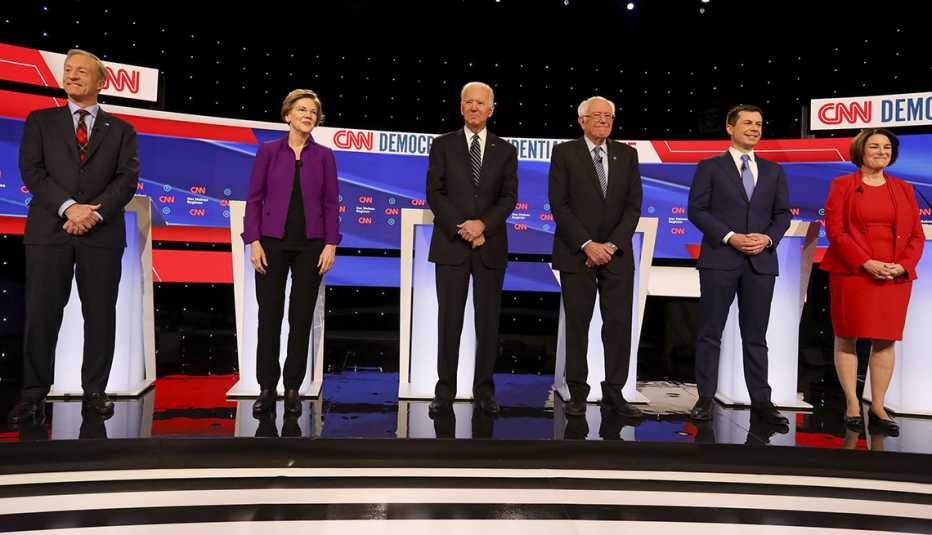Staying Fit


Limiting how much drugmakers can raise prices, allowing Medicare to negotiate with pharmaceutical companies and even empowering the government to contract for the manufacture of lower-priced medicines were some of the ideas Democratic presidential hopefuls suggested Tuesday night in the last debate before Iowans caucus on Feb. 3.
Six of the Democrats seeking their party's nomination to challenge President Trump in November squared off at Drake University in Des Moines, 20 days before Iowans will continue the tradition of being the first voters in the nation to state their preferences for a presidential nominee.


AARP Membership— $12 for your first year when you sign up for Automatic Renewal
Get instant access to members-only products and hundreds of discounts, a free second membership, and a subscription to AARP the Magazine.
Sen. Elizabeth Warren of Massachusetts said that on her first day in office she would lower the price of such lifesaving medicines as insulin, EpiPens and drugs to treat HIV-AIDS. She also said she would support having the federal government go into the drug manufacturing business.
Governments “let contracts to build buildings. They let contracts to build military weapons,” Warren said. “Put the contracts out so we can put more generic drugs out there and drive down those prices. The whole idea behind it is to get some competition out there."
Minnesota Sen. Amy Klobuchar said that though she is open to looking at government directly competing with drugmakers, the first things she would do as president to bring pharmaceutical prices down would be to have Medicare negotiate prices and to “start bringing in less expensive drugs from other countries. The issue here is that there are two pharma lobbyists for every member of Congress,” Klobuchar said. “They think they own Washington. They don't own me."
Late last year the House of Representatives passed a prescription drug bill that would direct Medicare to negotiate drug prices. Several states have also passed laws to ask the federal government to allow the importation of medicines from Canada and other countries, and the Trump administration has proposed a plan to allow that practice to start.
Former Vice President Joe Biden said his plan would allow Medicare to negotiate prices with drug companies and would not let manufacturers raise the price of a drug beyond the rate of medical inflation. “I would argue that the way you control drug prices is you limit what they can charge for those prices,” Biden said.
Pete Buttigieg, the former mayor of South Bend, Indiana, said he would put a $250 out-of-pocket cap on what Americans would have to pay each month for health care, including prescription drugs.

































































More on politics-society
Get Yourself Ready for the 2020 Election
Expect rough-and-tumble campaigns in which issues take a back seat and social media dominatesWhen You Can Vote in Your State's Primary or Caucus
Citizens over 50 will play pivotal role in who will be on the ballot in NovemberYour Guide to 2020 Primary Voting
From ID requirements to absentee voting, what you need to know